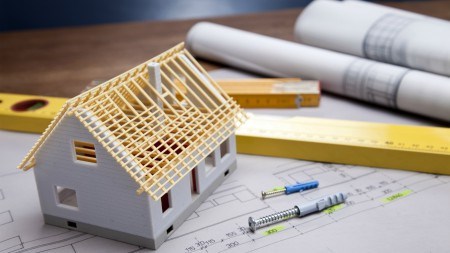Many buyers on a tight budget consider buying an older house and fixing it up. If you’re considering doing this, here are some pointers on buying a house to renovate.
What To Do?
The first thing you need to do is decide if you're up to the task. Major renovations are not for the faint-hearted, especially if you are thinking of doing them yourself.
Before you start ask yourself these questions:
- Can you live with the mess for what might be a year or more, depending on the work required?
- Are your skills up to the challenge? If not, can you afford the professionals required to turn your tumble-down property into the dream home you envisage?
Paul Stevens, CEO of Just Property, advises buyers looking into such opportunities, to be unemotional as they consider each property: “Don’t get carried away by the dream of what that cute Victorian will look like when you are finished sprucing her up. The very first step is to do a thorough inspection and be prepared to walk away if the work required is too great.”
The 10 most obvious issues you should be looking out for when buying to renovate from HouseCheck.co.za:
- Poor drainage (stormwater flows, guttering, and downpipes, damp);
- faulty electrical, plumbing and gas installations
- a leaking roof
- defective insulation
- poor maintenance
- structural damage
- water damage
- evidence of wood-destroying insects or fungi
- poor ventilation
- hazardous materials (including mold)
A good estate agent will point these things out to you, but they may not even be aware of them, so consider getting a home inspector in.
Older homes may be protected by law
Bear in mind that the fixer-upper you’re considering may well be an older house and that, says Stevens can have serious implications. “If a building is older than 60 years, it will generally be protected under Section 34 of the National Heritage Resources Act,” he says. “You will need to apply and pay for a permit for any alterations and additions - this can be done online by creating an account on the South African Heritage Resources Information System, or SAHRIS.”
You’ll find useful instructions on the SAHRIS site. The documents you will need for this application include existing and proposed floor plans, elevations, sections and a site plan, photographs of the building to be altered and adjacent buildings, the Title Deed Number, details of what alterations you wish to make, and motivation, any historical or architectural significance of the property, the context, ie the suburb/area in which it is situated, and consent from direct neighbours.
Getting approval from the municipality for renovations
Stevens notes that even if the home is less than 60 years old, you will need to get authorization for any alterations, even minor building work, from your local authority (and each municipality seems to have slightly different rules). Everything you build on the property except “minor building work” requires plans. “For this reason, it is essential that you also remember to ask the seller whether they have approved plans for any building work they’ve done,” Stevens adds.
Choosing the right contractors
Once you have your plans and approvals in place, it’s time to choose your contractors. Discuss the work together and get an estimate of the cost. Stevens recommends that you use the same detailed written instructions to secure quotations from at least three reputable professionals. It is important to brief each of them on-site, so they can take the context and requirements into account, he adds. When choosing a contractor, it’s a good idea to start with the membership lists of the Master Builders in your region, Stevens suggests.
Master Builders associations represent members of the building and construction industry in South Africa. Their members are required to possess “the necessary technical qualifications, knowledge and practical experience - or to employ, in a position of responsibility, a person or persons therewith - to ensure that all building projects are carried out in a workmanlike and economical manner.” When deciding which contractor’s quote to go with, remember that there's a big difference between a cost estimate and a detailed, written offer to carry out the work. “Don't sign anything until you are sure that your builder's offer is firm and clear and covers all your requirements,” Master Builders SA advise. “Ensure that the question of VAT is clear on the quotation. If the work is extensive, make sure that all quotations are based on model contract conditions. When you've chosen your building contractor, make sure you confirm your acceptance of the quotation in writing.”
Think like a property investor
“There are genuine opportunities out there for people who are prepared to put in the hard work of realising the value offered from improving a home that is outdated or has not been well looked after,” Stevens concludes. “If you are up for the challenge, remember to think like an investor when you’re looking at properties for sale. Ensure that the work you plan to do will not exceed your budget, or overcapitalise the property. It comes down to doing your homework, good advice from a professional, experienced agent, and then selecting the right people and materials to get the job done.”




